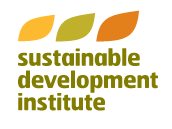Civil society raises concerns on prioritization of land allocation to foreign investors and insufficient public agricultural budget.
MONROVIA (LIBERIA), September 12, 2013 – The Liberian government is spending just two per cent of its budget on agriculture, despite Africa-wide consensus since 2003 that spending must be raised to ten per cent. [1]
As African leaders meet this week in Liberia for a key meeting to assess West Africa’s public spending on agriculture, civil society organisations including Friends of the Earth International and Sustainable Development Institute / Friends of the Earth Liberia are calling on African governments to deliver public investment in agriculture rather than prioritising investment based on large scale land acquisitions which bring risks to food security, the environment and rights of local people. [2]
From September 11-14, 2013, two hundred delegates including the Nigerian agriculture Minister and Liberian President meet to discuss West Africa’s record of implementing the 2003 ‘Maputo Declaration’ which recognised the critical role of agriculture in equitable development and committed to allocating at least ten per cent of Government budgets to the sector. [3]
The meeting is organised by ROPPA – West Africa’s largest farmer advocacy organization and is attended by representatives from governments, civil society and donors.
Sustainable Development Institute / Friends of the Earth Liberia programme manager Nora Bowier said:
“Our government must seriously engage with this event and be willing to critically self-reflect about how successful its efforts to promote farming in Liberia have been over the past decade.”
“Instead of handing over farming land to foreign companies, our government should promote policies that sustainably increase productivity and help Liberian farmers access local markets. This will decrease wasteful food imports and provide the basis for long-term development in rural areas.”
The 2003 Maputo Declaration commits member states to “revitalize the agricultural sector … through special policies and strategies targeted at small-scale and traditional farmers in rural areas.”
However, there is significant cause for concern in how effectively Liberia has been able to implement such policies. According to the Rights and Resources Initiative about 19 per cent of Liberia’s farm land has been handed over to companies to grow crops oil palm in the name of private investment - causing significant livelihood disruptions for small-scale farmers and food security concerns.
In addition, serious shortfalls in services for farming cooperatives and agribusiness owners in the country have been identified.
Recent reports from the Food and Agriculture Organisation and a UN High Level Panel have found that small holder farming remains one of most productive and resilient forms of farming with more than three times more potential to reduce poverty than any other sector. The expert recommendations from these reports are for governments to focus on policies that support investments by small farmers themselves rather than on private or foreign investment. [4] [5]
Friends of the Earth International Campaigner Kirtana Chandrasekaran said:
“There is growing consensus that Governments should invest in small holders rather than large companies to make progress in agriculture. Large scale foreign corporate interests often hinder real development. Instead, small farmers often can be highly productive. They maintain and build soil fertility, select and reproduce seeds, build production and storage infrastructure and provide several other essential investments every day.”
Sustainable Development Institute / Friends of the Earth Liberia is urging the Government of Liberia to use this opportunity to emphasize the importance of leaving land in the control of its traditional owners and ensuring that investment improves their ability to grow and sell food – rather than acting as a force that pushes them out of the sector to make way for foreign corporate interests.
FOR MORE INFORMATION
Please contact the Sustainable Development Institute / Friends of the Earth Liberia: Nora Bowier at +231 (0) 886410422 or Ashoka Mukpo at +231 (0) 888048710.
For email inquires please contact managementteam[at]sdiliberia.org
NOTES
[1] A recent audit of budget expenditures over the past ten years showed Liberia's spending on agriculture was at about 2 per cent – a significant shortfall given the importance of agriculture in Liberia.
[2] For more information on the environmental and Human Rights impacts of land grabbing on Liberia see http://www.foei.org/en/what-we-do/media/resources-for-journalists/sime-…
[3] The Maputo Declaration was officially titled ‘Declaration on Agriculture and Food Security in Africa’ see Assembly of the African union Second Ordinary Session 10 - 12 July 2003 Maputo, Mozambique http://www.nepad.org/system/files/Maputo%20Declaration.pdf
Only 5 out of 15 West African countries are above the 10% threshold on average in the period 2008-2011: Burkina Faso, Ghana, Mali, Niger and Senegal.
[4] See Food and Agriculture Organisation - The State of Food and Agriculture report 2012 – Investing in agriculture for a better future http://www.fao.org/publications/sofa/2012/en/
[5] UN High Level Panel of Experts report Investing in Smallholder Agriculture http://www.fao.org/fileadmin/user_upload/hlpe/hlpe_documents/HLPE_Repor…
